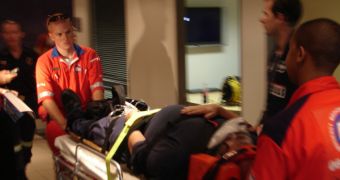A new research, published on December 16th, 2008, in the journal Annals of Internal Medicine, shows that most families of critically-ill patients would rather find out their loved ones' real medical conditions, than be deceived by doctors with more optimistic prognosis and life expectancy. The study, conducted by researchers at the University of California in San Francisco, led by Latifat Apatira, shows that 93 percent of 179 family members of seriously-ill patients, all on life support, agree that doctors should give them the news straightforwardly, be it good or bad.
Medics are concerned that breaking terrible news to the kins of a patient might blow away their hopes of a recovery, and could do serious emotional damage, especially if what caused the patient's injuries came unexpectedly, such as a car crash, or another type of accident. The families that were surveyed by Apatira's team say that keeping their loved ones' diagnosis a secret is "not an acceptable way to maintain hope."
However, six respondents to the study agreed that doctors should withhold information about a patient's health, if the care giver thinks that the news could be emotionally crippling, or that the patient would be so affected by it that he or she will give up fighting. Currently, doctors avoid discussing serious diagnosis with patients or families, and do so only when specifically asked.
The lead researcher says that family members believe that they are "resilient enough to hear news of a poor prognosis, and also need this information to begin to come to terms with the possible death of a loved one."
The team argues that doctors should be tough, since med school prepares them on how to break this type of news to patients, so as to avoid stripping away all hope from their hearts, and yet make them realize that there are little chances that their kin will survive. Emotional support coming from the health expert is crucial in times like these, psychologists say, and people should not be deprived of it.

 14 DAY TRIAL //
14 DAY TRIAL //